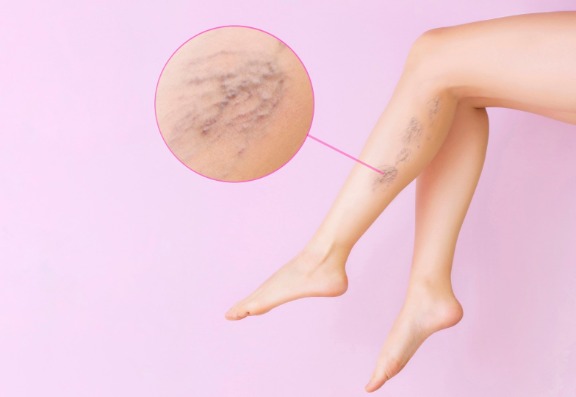Sclerosant Shakeup: Everything's Changing, Are You Ready?
Feeling overwhelmed by all the sclerosant options?
Avoid costly mistakes and frustrating side effects...
The Problem
With so many sclerosant agents on the market, choosing the right one for each patient can feel like a high-stakes gamble.
In this post, we break down the key sclerosants, simplify the decision-making process, and answer all those burning questions about the 0.2% STS change.
What Sclerosants Are Available Currently?
Two main sclerosing agents used are polidocanol and STS (sodium tetradecyl sulfate).
There is no significant difference between the two in terms of outcomes and adverse effects.
Polidocanol and STS are both effective sclerosing agents that work by damaging the lining of the vein, causing it to collapse and seal shut. However, there is no significant difference between the two in terms of how well they work or the side effects they cause.

The main difference between the two is the potency. STS is about twice as potent as polidocanol.
Potency refers to the concentration of the sclerosing agent needed to achieve the desired effect. STS is about twice as potent as polidocanol, meaning a lower concentration of STS is needed to be effective. This can be beneficial as it means there is less risk of damaging the surrounding tissue.
It is important to use the appropriate concentration according to the size of the vein being treated.
The concentration of the sclerosing agent used will vary depending on the size of the vein being treated. For smaller veins, a lower sclerosing agent concentration will be used. For larger veins, a higher concentration may be required.
Only a qualified healthcare professional should perform sclerotherapy.
Sclerotherapy is a medical procedure that should only be performed by a qualified healthcare professional, such as a dermatologist or vascular surgeon. This is because there is a risk of serious complications if the procedure is not performed correctly.
What is Meant By Off-Label?
When using an off-label use of a drug, the doctor needs to inform the patient about the risks and obtain their consent.
Sclerotherapy is sometimes performed using sclerosing agents that are not FDA-approved for this use. This is called off-label use. When using a drug off-label, the doctor is required to inform the patient about the risks and benefits of the procedure and to obtain their consent before proceeding.
In the context of medicine, "off-label" refers to the use of a drug for a purpose or in a way that is not specifically approved by the regulatory body (like the FDA in the US). This means the medication has been through the rigorous testing process and received approval for treating specific conditions or symptoms, but a doctor may choose to use it for something different based on their experience or emerging medical evidence.
Here's a breakdown of the concept:
Approved Use: A drug goes through extensive clinical trials to prove its safety and effectiveness for treating specific conditions. Once approved, the drug will have a label that details these approved uses, including dosage, potential side effects, and who should avoid it.
Off-Label Use: When a doctor prescribes a medication for a condition or in a way that isn't listed on the approved label, that's considered off-label use. There could be several reasons for this:
There might be promising research suggesting the drug could be effective for a different condition, but formal approval hasn't been obtained yet.
The approved treatment options for a specific condition may be limited or ineffective for a particular patient.
In some cases, a medication might be formulated for adults but used off-label to treat children because there's no alternative available.
Important Points about Off-Label Use:
While legal, off-label use carries some additional considerations:
The doctor needs to inform the patient about the lack of FDA approval for the specific use and potential risks involved. The patient then gives their informed consent to proceed.
Since the drug hasn't been thoroughly tested for this particular use, there might be limited data on its effectiveness and potential side effects.
Off-label use can sometimes lead to medical advancements. Doctors sharing their experiences with successful off-label treatments can pave the way for further research and potentially lead to formal FDA approval for that particular use.
It's important to remember:
Off-label use is a decision made by a doctor based on their professional judgment and a patient's specific needs.
Patients should always discuss any off-label use with their doctor and understand the potential benefits and risks involved.
Off-Label in the UK
The concept of off-label drug use applies in the UK as well, with similar principles and considerations as in the US. Here's how it relates specifically to the UK context:
Regulatory Body: In the UK, the Medicines and Healthcare products Regulatory Agency (MHRA) is responsible for approving the uses of medications. Similar to the FDA, they assess a drug's safety and efficacy for specific conditions.
Prescriber Responsibility: Doctors in the UK have the freedom to prescribe medications off-label if they believe it is in the best interest of the patient and supported by medical evidence. However, they are professionally accountable for this decision and need to:
Inform the Patient: Clearly explain to the patient that the use is off-label, discuss the potential benefits, the increased uncertainty regarding side effects, and any alternative treatments available. The patient must then provide informed consent.
Justify the Decision: The prescriber must be able to justify their decision to recommend an off-label drug. This would involve weighing the available evidence regarding potential effectiveness and keeping up to date with any relevant research.
Guidance: The General Medical Council (GMC) in the UK provides guidelines for prescribers regarding off-label use of medications. These guidelines emphasize the importance of informed consent, acting in the patient's best interests, and basing decisions on sound clinical judgment. You can find their document "Off-label or unlicensed use of medicines: prescribers’ responsibilities" on the GOV.UK website.
Examples of Off-Label Use in the UK:
Pediatrics: Many drugs lack specific licenses for use in children. Doctors may prescribe them off-label based on evidence and experience in carefully adjusted doses.
Rare Diseases: Medications designed for common conditions might be repurposed off-label to treat rare diseases where approved treatment options are limited.
Specific Medications: Like the US, certain medications have well-established off-label uses in the UK, driven by research and clinical practice, even if not formally approved.
Key Points:
Off-label use of medications is a recognized medical practice in the UK.
It allows for flexibility and potential innovation in treatment options when conventional therapies are ineffective or unavailable.
Prescribers must take responsibility for their decisions, prioritize patient safety, and ensure informed consent.
Important Changes are Coming
Kreussler Pharma and STD Pharmaceuticals, who have joined together to become the force for sclerotherapy made the decision to discontinue 0.2% STS.
Aethoxysklerol 0.5% is available in an equivalent strength.
If you want to read more, the experts at Consulting Room really know what they're talking about and have put together some Varicose veins, EVLA laser treatment and sclerotherapyFAQs just for you.
If you have more questions, you can use the Varicose veins, EVLA laser treatment and sclereotherapy questions feature to talk to our panel of trained medical experts.
If you're keen to get started with any of these treatments right away then you're in luck - those clever folks also have a list of trusted, accredited Varicose veins, EVLA laser treatment, and sclerotherapy clinics in your area.
Many thanks to the author of this blog Dr Haroun Gajraj who has over 30 years’ experience of treating people with varicose veins, thread veins and other vein complications such as phlebitis, varicose eczema and varicose ulcers.
He is the only doctor based in Dorset who is in a full-time private practice treating people with vein problems.
My wife and I founded The VeinCare Centre for the treatment of venous disease and we have gathered together an award-winning team of experts.

Here we’ll guide you through how to identify its triggers and what you can do to prevent it.
Halloween is almost here but one thing you shouldn’t feel scared of is having treatment! We spoke to a Dr to get the ultimate guide on what to look out for...
With botched surgeries costing the NHS £1.7 million in corrective procedures, the issue of "treatment tourism" is highlighted in a Coronation Street storyline.
Hey, wait!
Before you go.....
Let's stay in touch, pop your details here and we'll send our editor's hand-picked updates on your fave subjects.